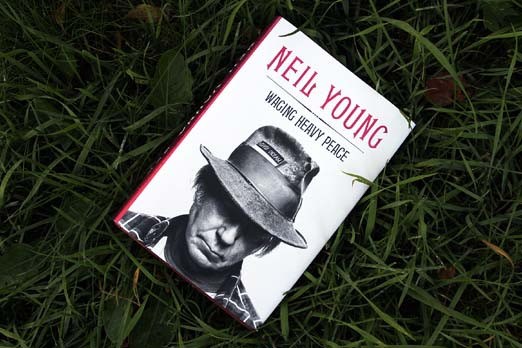That town in North Ontario where Neil Young continued his quest for music stardom gets a lengthy shout-out in his new book.
Young devotes several pages in Waging Heavy Peace to his Fort William days.
The rocker, who went on to pen the likes of Heart of Gold, Southern Man and Rockin’ in the Free World, play with Crosby, Stills, Nash and Young, Buffalo Springfield and Crazy Horse, and influence entire music genres that followed, stayed in dingy Lakehead motels, often playing for a place to sleep. But, he says, he managed to survive, encouraging him to continue to write and play.
It was at the Fourth Dimension Coffee House in 1965, the venerable old folk club on the corner of Simpson and George streets, where Young first met Stephen Stills, forging a lifelong friendship and musical partnership that’s still going strong today.
After Stills left for New York, Young, playing with the Squires, remained behind to eke out a living on local stages.
“… the Squires stayed at a motel stayed at a motel called Dinty’s Motor Inn. We were able to live there for nothing in exchange for playing Saturday and Sunday afternoons at the Fourth Dimension Club,” Young writes in the book.
He then notes it was tough times for the band, who managed to garner other gigs around the city.
Just how poor were they?
“For a while we lived on Spam and Ritz crackers we bought in a little liquor store across the street from the motel.”
Booted out of the motel, they moved on to the YMCA.
“Then we started playing at a place called the Pancake House on Sunday afternoon,” he writes. “That was okay, but it didn’t make us enough money to live.”
Young also mentions recording at CJLX, where songs like I’ll Love You Forever and I Wonder were produced by DJ Ray Dee, “the number-one Fort William disc jockey who adopted us when he heard us at that first Flamingo Club engagement.”
The rock and roll hall-of-famer longingly recalls Mort, the 1948 Buick Roadmaster hearse he drove around town. It was also the car he used to leave the city for good – although his departure wasn’t exactly planned. Young says he and some fellow musicians were headed to Sault Ste. Marie and got halfway there before the hearse broke down near Blind River, where they were towed to Bill’s Garage.
The repairs were hopeless and then and there Young decided it was time to move on.
“I thought being in Fort William without the hearse would be nowhere. It was a feeling,” he writes. “The hearse was part of the whole thing. The picture. The image. There is an intangible to a group and a persona. You can’t lose that.”
Young left for North Bay, eventually landed in Toronto, then made his way to Los Angeles and started making music history.
.
Waging Heavy Peace, which also discusses his love of Lionel trains and PureTone, his attempt to revolutionize digital music, is available at local bookstores.
